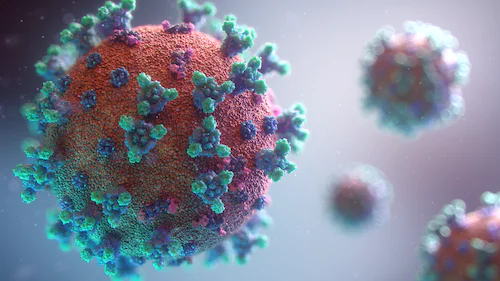Are you tired of hitting the gym day in and day out without seeing results? Have you ever wondered how exactly your muscles grow? Look no further, as we’re breaking down the science behind muscle hypertrophy. From debunking common myths to understanding key concepts such as progressive overload, this post will leave you with a deeper understanding of how to build muscle effectively. Get ready to transform your workouts and see those gains!
What is muscle hypertrophy?
Muscle hypertrophy is an increase in muscle size. This can be due to an increase in the number of muscle cells, an increase in the size of each individual muscle cell, or a combination of both. Muscle hypertrophy occurs when you place a greater demand on your muscles than they are used to. This can be done through resistance exercise, such as lifting weights. When you lift weights, your muscles are working against gravity and this resistance causes your muscles to grow. The more weight you lift, the greater the stress placed on your muscles, and the more they will grow. In order for muscle hypertrophy to occur, you must consistently challenge your muscles with progressively heavier weights.
The different types of muscle hypertrophy
There are three types of muscle hypertrophy: myofibrillar, sarcoplasmic, and connective tissue. Myofibrillar hypertrophy is the increase in size of the muscle fibers themselves. This is the type of hypertrophy that leads to increases in strength. Sarcoplasmic hypertrophy is the increase in size of the non-muscle cells within the muscle. This type of hypertrophy leads to increases in endurance. Connective tissue hypertrophy is the increase in size of the tendons and ligaments that attach muscle to bone. This type of hypertrophy can lead to injury if not monitored properly.
What causes muscle hypertrophy?
One of the most important factors in muscle hypertrophy is mechanical tension. This is the force placed on the muscle during contraction, which can come from lifting weights or other forms of resistance training. Other important factors are muscle damage, which occurs when the muscles are worked hard enough to cause microtrauma, and metabolic stress, which is a byproduct of exercise that has been shown to promote muscle growth.
How can you achieve muscle hypertrophy?
When it comes to muscle hypertrophy, there are three main factors that come into play: muscle tension, muscle damage, and metabolic stress. By applying these three factors to your training regimen, you can maximize muscle growth and achieve the results you’re after.
1. Muscle Tension
One of the key ingredients for sparking muscle growth is tension. When your muscles are placed under tension, they are forced to adapt and grow in order to better handle that load in the future. This is why lifting heavy weights is essential for building muscle; by challenging your muscles with heavier loads, you create the conditions necessary for them to get bigger and stronger.
2. Muscle Damage
In order for your muscles to grow, they must first be damaged. This may sound counterintuitive, but it’s actually a good thing! When you lift weights, you cause microscopic tears in your muscle fibers. In response to this damage, your body repairs and strengthens the affected area, resulting in increased muscular size and strength.
3. Metabolic Stress
In addition to mechanical tension and muscle damage, another important factor in achieving muscle hypertrophy is metabolic stress. This occurs when your muscles are subjected to high levels of work (think: lifting heavy weights) without adequate rest in between sets. As a result, your muscles become fatigued and produce lactic acid, which signals your body to start rebuilding those muscles even bigger and stronger than before.
Foods that help with muscle growth
If you’re looking to bulk up, you need to be strategic about the foods you eat. Protein is essential for muscle growth, so make sure you’re getting enough of it at every meal. Good sources of protein include lean meats, eggs, dairy, and beans. In addition to protein, you need to consume complex carbohydrates and healthy fats to support your training. Good sources of complex carbs include oatmeal, quinoa, sweet potatoes, and brown rice. Healthy fats come from avocados, nuts, seeds, and olive oil. Eating a balanced diet will help you build muscle mass safely and effectively.
Supplements for muscle growth
When it comes to muscle growth, supplements can play a role in helping you reach your goals. While there is no one-size-fits-all approach when it comes to supplementation, there are a few key nutrients that can help support muscle growth.
Protein is the most important nutrient for building muscle. It provides the body with the amino acids needed to build new muscle tissue. A high-quality protein powder can be a helpful way to ensure you’re getting enough protein in your diet.
Creatine is another supplement that has been shown to be effective for enhancing muscle growth. Creatine helps to increase ATP production, which leads to improved energy and strength levels. This can be especially beneficial during intense workouts when your muscles are working hard and need extra energy.
Beta-alanine is another ingredient found in many pre-workout supplements. It’s thought to improve performance by increasing carnosine levels in muscles, which can help buffer against lactic acid buildup and fatigue.
There are many other supplements on the market that claim to help with muscle growth, but these are some of the most well-studied and effective ingredients. When selecting supplements, always look for those that contain high-quality ingredients and have been backed by scientific research.
Conclusion
Muscle hypertrophy is a complex process that requires a combination of nutrition, exercise, and rest. While there may be some shortcuts available to help you reach your goals more quickly, the key is to find what works best for your body and lifestyle. By understanding the science behind muscle growth, you can make an informed decision about how best to approach training and diet as well as which supplements might help give you an edge. With dedication and hard work, anyone can break down their muscles for ultimate performance gains!










